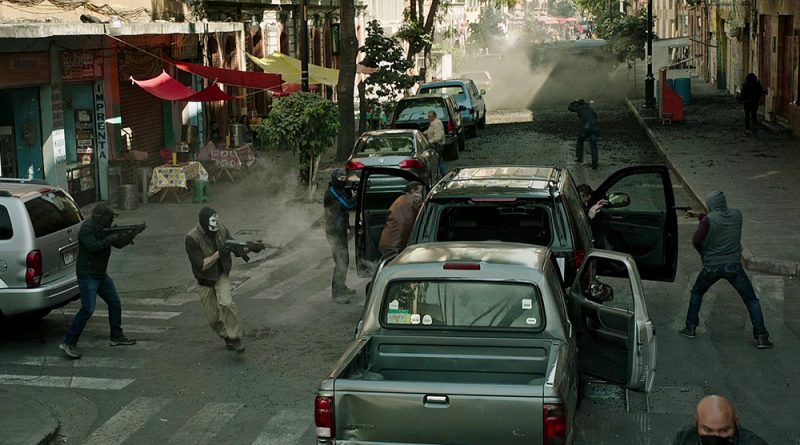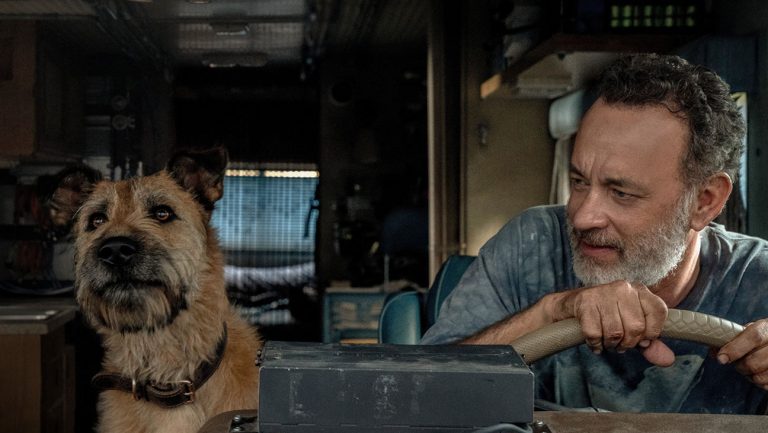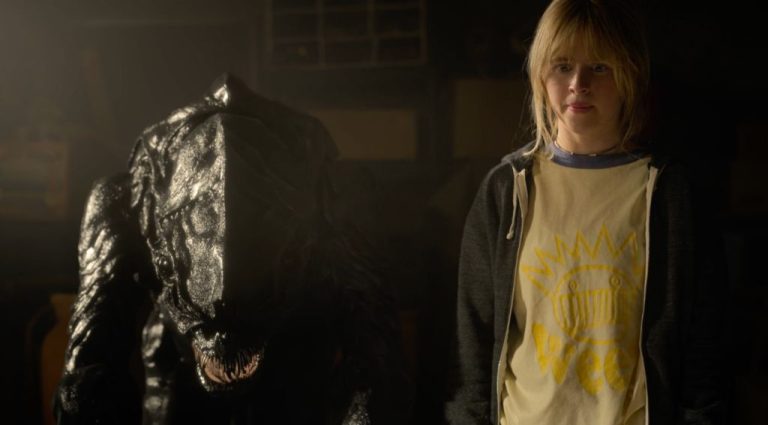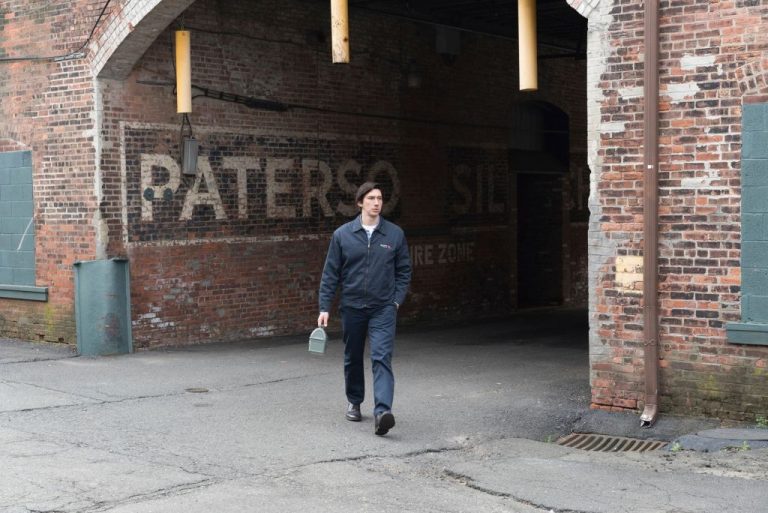Despite being released during a time of border patrol strife that highlights the film’s subject matter, the response to Sicario 2: Day of the Soldado has been highly polarised, despite the discussion it has warranted. Given that the current news of US-Mexico border relations so present in the minds of critics when they saw this timely released sequel, it may’ve swayed their feelings towards this new action-thriller, positively or negatively, and a rewatch in the near future would be interesting to see if there’s any contrast with their initial viewings.
Whereas Richard Roeper of the Chicago Sun-Times and Peter Bradshaw of The Guardian gave it glowing five star reviews, praising its grittiness and its uncompromising presentation of US-Mexican relations, Alissa Wilkinson of Vox and Clint Worthington of Consequence of Sound were more bothered by the hollowness of the film’s feel-bad nihilism.
There are plenty of mixed reviews in the midst, from both critics and audiences alike, whose Rotten Tomatoes ratings currently stand at 64% and 66% respectively. MetaCritic shows more disparity between critics and audiences with 61 and 71 respectively. Audiences were more forgiving on IMDb, with its current 7.4/10 rating, indicating that despite some mixed feelings from audiences as well, they have been generally more positive and less conflicted than critics.
It’s exciting for a film to get such divisive reviews, which may indicate that how much it fails with one viewer may work to the same degree with another viewer. This is in stark contrast to the film’s predecessor, Sicario (2015), which has a far better rating from critics and audiences on each of these three sites, but there are still critics (like myself) that prefer this more muscular and more toned sequel.
What makes Soldado really stand apart from its predecessor is the rather risky decision to drop the centrepiece of the original, Emily Blunt’s protagonist. Critics initially praised her as the defining aspect of the original – in her Soldado review titled ‘Sicario sequel would have been a lot better with Emily Blunt in it’, Sara Stewart of the New York Post states “without a humanizing element like Blunt’s character, this whole grim affair is just a race to the bottom in which everyone loses”, and Mark Kermode too claims to miss her character and seeing through her eyes how she mediates this kind of world.
But it’s a bold move like this that puts this sequel into a different direction and not reiterate any of the first film’s points. This creative decision (made by director Stefano Solima) restructures the focal point of the series, introducing a more encompassing view (a drone-like view, if you will) of the entire situation, rather than honing in on the central character.
Sicario worked as its own film, seeing how the drug cartel culture had a personal impact on the people who were brought in to police it. But Soldado strips away the personal stories of psychology and vengeance as much as it can so it has more focus on the ensemble of characters, which it’s able to do with more success than its processor. Whereas Sicario didn’t make much use of its Mexican policeman character, Silvio (Maximiliano Hernández), who failed to give the film its across-the-border perspective, the inclusion of the young Miguel (Elijah Rodriguez) in Soldado balances the US-Mexican perspective to be just that little bit more even.
Despite focusing more on Mexico and the struggles of its citizens, Soldado has been heaped with accusations of negative Mexican and Muslim stereotypes. However, no complaining has been made about the negative portrayal of the US government, who are shown to be horrendously incompetent when they issue the most extreme of carte blanche steps of eradicating potential terrorism, even when they evidently haven’t finished their research. This kind of antagonism towards the US government, as well as the Mexican smugglers and Middle Eastern terrorists, is more of a story element rather than a simplistic all-encompassing stereotype.
But Ani Bundel didn’t look at its representations this way, calling Soldado one of the worst films of the year so far in an opinion piece for NBC. She felt the film’s release was an insult to the current events at the border and thought it was hypocritical that Hollywood would be so critical of the US’ current treatment of Mexican illegal immigrants and then make a film she believed was a Trumpian white supremacist view of the situation. Ani, who states that terrorism is committed regularly in the US by white men (who are either racist or sexless), claims that because there’s never been a terrorist attack in the US from a Middle-Eastern who illegally crossed from Mexico, that this film is perpetuating a harmful stereotype, as opposed to being creative with its real world issues (and then heaping anti-American irony on top). She claims “positive representation is just as important a propaganda piece to acceptance of all kinds as negative stereotypes are in reinforcing hatred”, though still she’s just one of many that doesn’t discern antagonists from harmful characterisation.
In yet another badly opinionated opinion piece, Monica Castillo states that the characterisation of young Miguel as he transforms from a school-skipping teenager into a young thug “reaffirms the racist stereotype that all Latinos — especially Central Americans — are criminals”, despite the overwhelming portion of Latinos seen in the film who aren’t criminals, but desperate citizens forced to gain help from people smugglers. She too conflates the antagonist behaviour with negative representation, though she too has nothing to say about the grim and overly-eager workings of the amoral US government (though she does believe that the violence perpetuated from them is mere entertainment with no moral attachment).
The aforementioned Consequence of Sound review makes the most ridiculous claim, with Clint Worthington ending his review with “audiences are going to cheer and clap at every air strike, headshot and toss of a grenade in the film like it’s a Dirty Harry movie, and it will chill you to the bone.” Well, that didn’t happen at all in my screening, and even if it did, he’s at no liberty to say how I feel about a movie or its audience – a critic should speak about how they feel, not how a hypothetical audience will feel.
Released at a sensitive time, Soldado wasn’t made to comfort audiences or reaffirm their beliefs. It’s a dedicated and focused inspection on the troubling matter occurring at the border, though it does dose out the right tones in the right places, keeping seriousness in its brutal realities and silliness in its ultraviolent story. It doesn’t have the cinematic prowess that Sicario did, with its Denis Villeneuve touch, first-class Roger Deakins cinematography, or doom-laden Jóhann Jóhannsson score.
But Stefano Solima is more of a Paul Greengrass than a Denis Villeneuve, and I hope he can continue to make action-thriller blockbusters as rivetingly gritty as Soldado. This breakthrough for him is mostly interested in mere representation rather than moralisation. It shows a view of reality, one distorted through politically charged blockbuster entertainment, and it doesn’t show the view that people would like to see that would make them feel better about the world.



![Special Actors [2020]: ‘Fantasia’ Review – A silly comedy with an intriguing plot](https://79468c92.delivery.rocketcdn.me/wp-content/uploads/2020/08/Special-Actors-Movie-Review-highonfilms-1-768x512.jpg)



![Hellboy [2019] Review: Should’ve Never Been Summoned](https://79468c92.delivery.rocketcdn.me/wp-content/uploads/2019/04/Hellboy_2019_HOF2-768x403.jpg)
